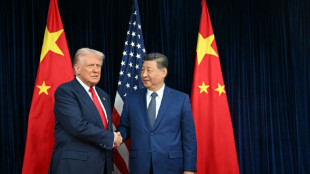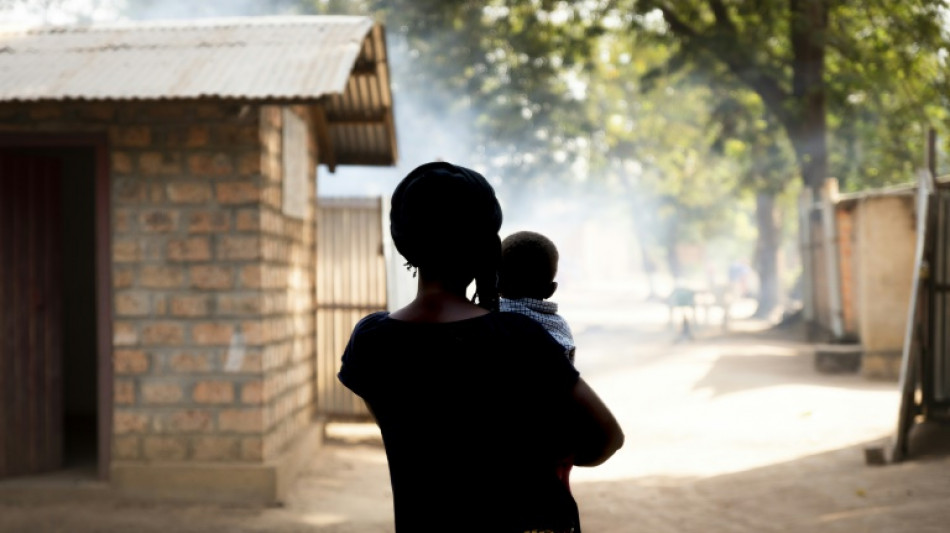
-
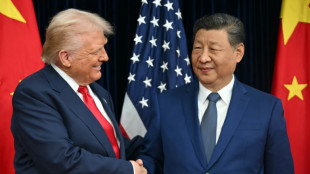 'Significant' Xi, Trump talks win cautious optimism in China
'Significant' Xi, Trump talks win cautious optimism in China
-
French justice minister visits jailed former president Sarkozy

-
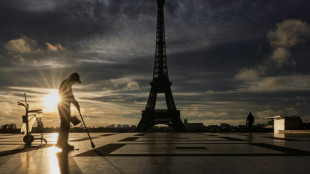 Eurozone growth beats expectations in third quarter
Eurozone growth beats expectations in third quarter
-
Bali trial begins for 3 accused of Australian's murder
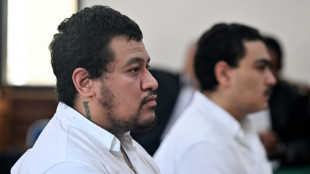
-
 Dutch election a photo finish between far-right, centrists
Dutch election a photo finish between far-right, centrists
-
IOC removes Saudi Arabia as host of inaugural Esports Olympics
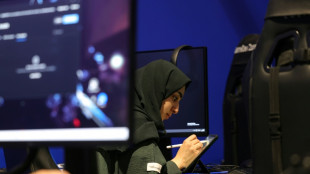
-
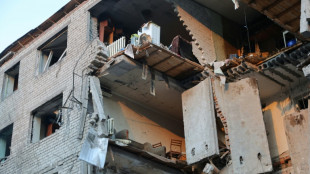 Russia batters Ukraine energy sites, killing two
Russia batters Ukraine energy sites, killing two
-
Shell's net profit jumps despite lower oil prices

-
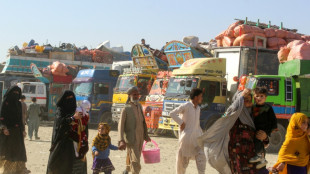 Pakistani security source says Afghanistan talks 'likely' to resume
Pakistani security source says Afghanistan talks 'likely' to resume
-
Fentanyl, beans and Ukraine: takeaways from Trump-Xi's 'great meeting'
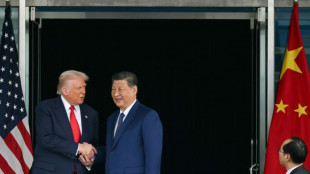
-
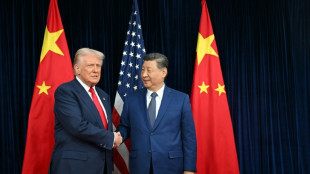 Asia markets fluctuate as investors examine Trump-Xi talks
Asia markets fluctuate as investors examine Trump-Xi talks
-
Branson's Virgin moves closer to launching Eurostar rival
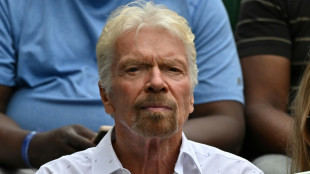
-
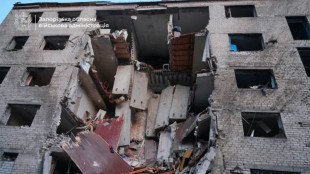 Russia hits Ukraine energy sites, killing one, wounding children
Russia hits Ukraine energy sites, killing one, wounding children
-
Asia markets fluctuate as investors mull Trump-Xi talks
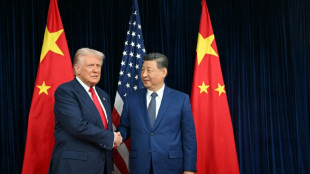
-
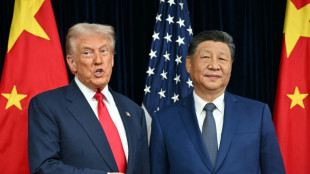 Trump, Xi ease fight on tariffs, rare earths
Trump, Xi ease fight on tariffs, rare earths
-
Volkswagen posts 1-billion-euro loss on tariffs, Porsche woes

-
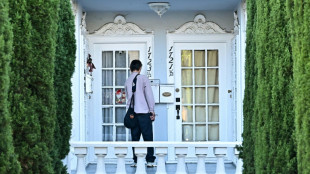 'Fight fire with fire': California mulls skewing electoral map
'Fight fire with fire': California mulls skewing electoral map
-
Fentanyl, beans and Ukraine: Trump hails 'success' in talks with Xi
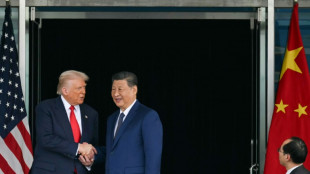
-
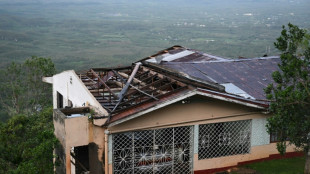 'Nowhere to sleep': Melissa upends life for Jamaicans
'Nowhere to sleep': Melissa upends life for Jamaicans
-
Irish octogenarian enjoys new lease on life making harps
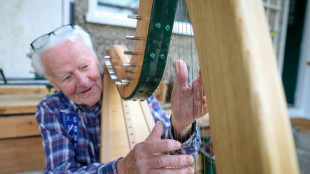
-
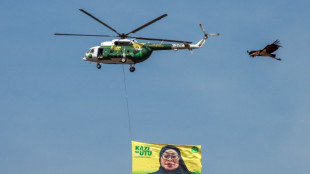 Tanzania blackout after election chaos, deaths feared
Tanzania blackout after election chaos, deaths feared
-
G7 meets on countering China's critical mineral dominance

-
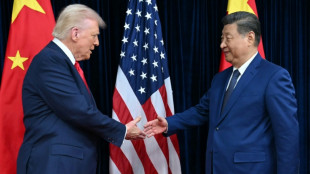 Trump hails tariff, rare earth deal with Xi
Trump hails tariff, rare earth deal with Xi
-
Court rules against K-pop group NewJeans in label dispute

-
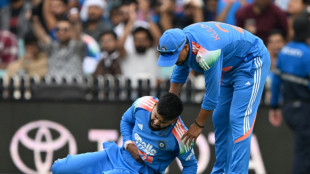 India's Iyer says 'getting better by the day' after lacerated spleen
India's Iyer says 'getting better by the day' after lacerated spleen
-
Yesavage fairytale carries Blue Jays to World Series brink

-
 Bank of Japan keeps interest rates unchanged
Bank of Japan keeps interest rates unchanged
-
Impoverished Filipinos forge a life among the tombstones

-
 Jokic posts fourth straight triple-double as Nuggets rout Pelicans
Jokic posts fourth straight triple-double as Nuggets rout Pelicans
-
UN calls for end to Sudan siege after mass hospital killings

-
 Teenage Australian cricketer dies after being hit by ball
Teenage Australian cricketer dies after being hit by ball
-
As Russia advances on Kupiansk, Ukrainians fear second occupation

-
 Trade truce in balance as Trump meets 'tough negotiator' Xi
Trade truce in balance as Trump meets 'tough negotiator' Xi
-
China to send youngest astronaut, mice on space mission this week

-
 Yesavage gem carries Blue Jays to brink of World Series as Dodgers downed
Yesavage gem carries Blue Jays to brink of World Series as Dodgers downed
-
With inflation under control, ECB to hold rates steady again

-
 Asia stocks muted with all eyes on Trump-Xi meeting
Asia stocks muted with all eyes on Trump-Xi meeting
-
Personal tipping points: Four people share their climate journeys

-
 Moto3 rider Dettwiler 'no longer critical' after crash: family
Moto3 rider Dettwiler 'no longer critical' after crash: family
-
US economy in the dark as government shutdown cuts off crucial data

-
 Trump orders nuclear testing resumption ahead of Xi talks
Trump orders nuclear testing resumption ahead of Xi talks
-
'Utter madness': NZ farmers agree dairy sale to French group

-
 Samsung posts 32% profit rise on-year in third quarter
Samsung posts 32% profit rise on-year in third quarter
-
30 years after cliffhanger vote, Quebec separatists voice hope for independence

-
 Taxes, labor laws, pensions: what Milei wants to do next
Taxes, labor laws, pensions: what Milei wants to do next
-
South Sudan's blind football team dreams of Paralympic glory
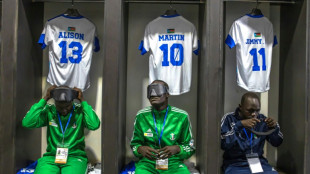
-
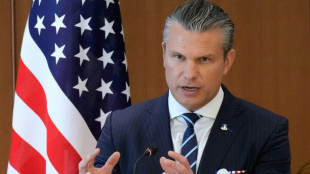 US says 4 killed in new strike on alleged Pacific drug boat
US says 4 killed in new strike on alleged Pacific drug boat
-
What we do and don't know about Rio's deadly police raid
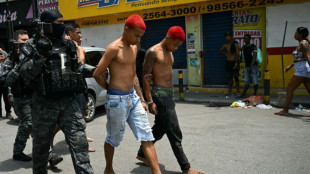
-
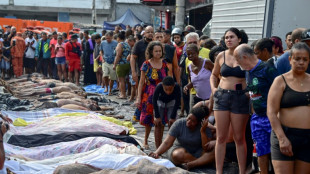 'They slit my son's throat' says mother of teen killed in Rio police raid
'They slit my son's throat' says mother of teen killed in Rio police raid
-
Arteta hails 'special' Dowman after 15-year-old makes historic Arsenal start


Rape stalks women in C. Africa's dirty war
Maia looks down at her expanding belly, her eyes welling with tears.
Four months ago, an armed man grabbed and raped the 15-year-old, attacking her as she was harvesting cassava roots.
In the remote northwest of the Central African Republic (CAR), sexual violence targeting women, adolescents and even younger girls is on the rise.
Brutal acts are committed by rebels, militiamen and security forces alike, according to the United Nations.
In Paoua, about 500 kilometres (300 miles) northwest of the capital Bangui, more than a dozen rape victims turn up every day at a clinic run by the Danish Refugee Council (DRC).
The distraught teenager struggles to put her feelings into words. "I was alone in the fields when an armed man wearing a turban grabbed me," she says in a near-whisper.
"I told him I was a virgin and begged him not to hurt me," Maia says, unable to utter the word "rape", even as she bears the unborn child of the man who assaulted her.
Like Maia, Marie was harvesting cassava to feed her family when two armed men appeared.
Her husband fled the scene, but she reacted too slowly.
"They tied my hands, tore my clothes and took turns raping me," says the 23-year-old, who was wearing a traditional gown in the purple, green and white colours of International Women's Day.
The rape victims interviewed by AFP all had similar stories.
Most said they had been assaulted in the fields by rebels of a powerful local militia known as the 3R, a name derived from the French words for Return, Reclamation and Rehabilitation.
- 'Easy target' -
"In this area, it is mainly women who farm and take care of feeding the family," says Lola, an employee at the centre whose name has been changed for her safety, like Maia's and Marie's.
"Alone and helpless in the fields, they are an easy target for the rebels."
A civil war in the CAR that began in 2013, pitting myriad militias against a state on the verge of collapse, had lessened considerably in recent years.
But about a year ago, fighting resumed abruptly when rebels launched an offensive to overthrow President Faustin Archange Touadera.
At the time, armed groups controlled two-thirds of the CAR's territory.
But they ceded most of it when the army, backed by hundreds of Russian paramilitaries, mounted a massive counter-offensive against the rebels.
Today militia forces are confined to the countryside and have switched to guerrilla tactics -- and harassment and abuse of civilians are on the rise.
The UN Office for the Coordination of Humanitarian Affairs (OCHA) recorded 6,336 cases of gender-based violence between January and July 2021 across the deeply poor country.
The agency identified a quarter of such cases as sexual violence, an increase of 58 percent compared with the first half of 2020. Rebels and militiamen are more active in the Paoua region.
Recent reports by the United Nations or by UN-sponsored experts have accused both soldiers and their Russian mercenary allies of committing rapes.
At the Paoua hospital, signs prohibit the carrying of weapons.
A dozen women and girls wait outside a door freshly painted in pink to see Fabrice Clavaire Assana, a doctor who specialises in counseling and treating victims of gender-based violence.
"After a phase of listening and building confidence," Assana says, he carries out gynaecological examinations and provides emergency treatment when needed.
But his options are few.
The "morning-after" anti-pregnancy pill, hepatitis B vaccine and anti-HIV medicine work only if taken within 72 hours. "This is rarely the case," he says regretfully.
- 50km trek -
After Marie was assaulted, she turned first to relatives.
"I was distraught and ashamed. I first went to my in-laws in my torn clothes, but they were unable to pay for my transport to Paoua," she says.
So Marie then walked 50 km to Paoua, "praying" not to tread on a landmine or run into rebels.
"I relive the scene day and night, I can't go back to the fields," sighs Marie, burying her face in her hands.
"My husband has fled -- now I'm alone with two children to feed, and I can't grow crops."
Neither Maia nor Marie has tried to seek justice for the men who raped them.
Such crimes almost always go unpunished in the absence of functioning courts.
S.Barghouti--SF-PST

